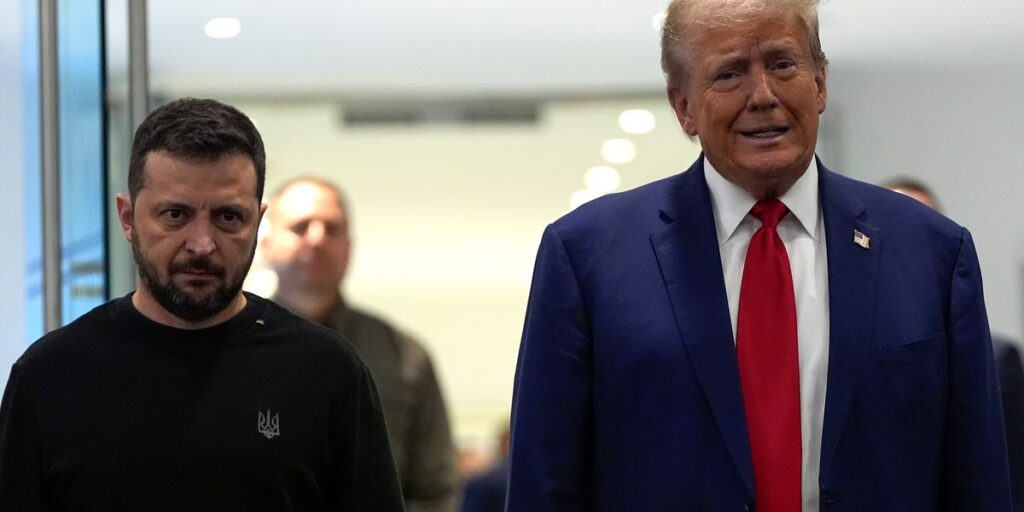In a recent interview with the “PBD Podcast,” former President Donald Trump criticized Ukrainian President Volodymyr Zelenskyy, suggesting he bore some responsibility for allowing Russia’s invasion of Ukraine. Trump argued that Zelenskyy, whom he described as a skilled “salesman,” should have done more to prevent the conflict that began on February 24, 2022. He claimed Zelenskyy has benefited from substantial U.S. military aid but implied that this financial support did not justify the war breaking out. Trump emphasized that if he were president again, resolving the ongoing conflict would be among his top priorities, given his reportedly good relationships with both Zelenskyy and Russian President Vladimir Putin.
Trump conveyed a critical view of the situation, asserting that President Joe Biden played a significant role in instigating the war. He suggested that the conflict could have been avoided with more competent leadership in the White House. Trump’s comments were laced with frustration as he reflected on Biden’s rhetoric, which he claimed was counterproductive. In his view, the war should have been effectively addressed before it erupted, and he expressed a desire to take control of the narrative while positioning himself as a potential mediator in the conflict.
The former president’s remarks raised eyebrows among some political observers, particularly in the context of ongoing U.S. support for Ukraine. Many Democratic lawmakers and international allies worry about what a resurgence of Trump in the presidency could mean for both Ukraine’s future and U.S. foreign policy. Concerns are especially heightened regarding Trump’s relationships with key figures like Putin, given reports suggesting he has remained in contact with the Russian leader since leaving office. This raises questions about Trump’s commitment to U.S. interests and alliances, particularly in the face of aggression from Russia.
In the podcast, Trump made it clear that he believes the resolution of the conflict should be prioritized, arguing that human lives are at stake. While he did not comment directly on whether a Ukrainian victory was essential for the U.S., Trump maintained that the focus should be on negotiating a settlement to end the violence. This aligns with his historical approach to foreign policy, which often emphasizes the idea of making deals and bypassing protracted conflicts.
The conversation around Trump’s foreign policy approach becomes even more complex with references from journalist Bob Woodward’s recent book, which suggests that Trump had multiple conversations with Putin after leaving office. Although Trump has downplayed these interactions, some see them as indicative of his sympathies towards the Russian president and his increasingly isolationist stance for the U.S. This duality could pose challenges for U.S.-Ukraine relations moving forward, especially if Trump’s rhetoric appears to downplay the threat posed by Russia.
As the 2024 election approaches, Trump’s comments and strategies regarding the Ukrainian conflict will likely be scrutinized further. The distinction he makes between his relationships with Zelenskyy and Putin could signal a broader foreign policy that prioritizes negotiation over confrontation. However, the implications of those relationships remain uncertain amid ongoing tensions in Eastern Europe, demonstrating how Trump’s next moves will be pivotal for both U.S. foreign policy and the future of Ukraine as the war remains unresolved.

